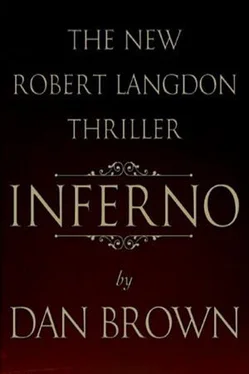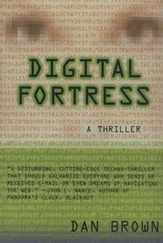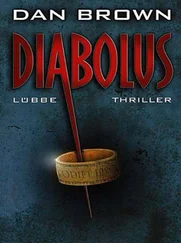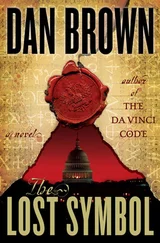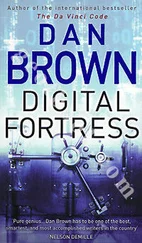Elizabeth was seething now. “Whoever you are, you know damned well the WHO takes overpopulation very seriously. Recently we spent millions of dollars sending doctors into Africa to deliver free condoms and educate people about birth control.”
“Ah, yes!” the lanky man derided. “And an even bigger army of Catholic missionaries marched in on your heels and told the Africans that if they used the condoms, they’d all go to hell. Africa has a new environmental issue now — landfills overflowing with unused condoms.”
Elizabeth strained to hold her tongue. He was correct on this point, and yet modern Catholics were starting to fight back against the Vatican’s meddling in reproductive issues. Most notably, Melinda Gates, a devout Catholic herself, had bravely risked the wrath of her own church by pledging $560 million to help improve access to birth control around the world. Elizabeth Sinskey had gone on record many times saying that Bill and Melinda Gates deserved to be canonized for all they’d done through their foundation to improve world health. Sadly, the only institution capable of conferring sainthood somehow failed to see the Christian nature of their efforts.
“Dr. Sinskey,” the shadow continued. “What the World Health Organization fails to recognize is that there is only one global health issue.” He pointed again to the grim image on the screen — a sea of tangled, cloying humanity. “And this is it.” He paused. “I realize you are a scientist, and therefore perhaps not a student of the classics or the fine arts, so let me offer another image that may speak to you in a language you can better understand.”
The room went dark for an instant, and the screen refreshed.
The new image was one Elizabeth had seen many times … and it always brought an eerie sense of inevitability.

A heavy silence settled in the room.
“Yes,” the lanky man finally said. “Silent terror is an apt response to this graph. Seeing it is a bit like staring into the headlight of an oncoming locomotive.” Slowly, the man turned to Elizabeth and gave her a tight, condescending smile. “Any questions, Dr. Sinskey?”
“Just one,” she fired back. “Did you bring me here to lecture me or insult me?”
“Neither.” His voice turned eerily cajoling. “I brought you here to work with you. I have no doubt you understand that overpopulation is a health issue. But what I fear you don’t understand is that it will affect the very soul of man. Under the stress of overpopulation, those who have never considered stealing will become thieves to feed their families. Those who have never considered killing will kill to provide for their young. All of Dante’s deadly sins — greed, gluttony, treachery, murder, and the rest — will begin percolating … rising up to the surface of humanity, amplified by our evaporating comforts. We are facing a battle for the very soul of man.”
“I’m a biologist. I save lives … not souls.”
“Well, I can assure you that saving lives will become increasingly difficult in the coming years. Overpopulation breeds far more than spiritual discontent. There is a passage in Machiavelli—”
“Yes,” she interrupted, reciting her recollection of the famous quote. “ ‘When every province of the world so teems with inhabitants that they can neither subsist where they are nor remove themselves elsewhere … the world will purge itself.’ ” She stared up at him. “All of us at the WHO are familiar with that quotation.”
“Good, then you know that Machiavelli went on to talk about plagues as the world’s natural way of self-purging.”
“Yes, and as I mentioned in my talk, we are well aware of the direct correlation between population density and the likelihood of wide-scale epidemics, but we are constantly devising new detection and treatment methods. The WHO remains confident that we can prevent future pandemics.”
“That’s a pity.”
Elizabeth stared in disbelief. “I beg your pardon?!”
“Dr. Sinskey,” the man said with a strange laugh, “you talk about controlling epidemics as if it’s a good thing.”
She gaped up at the man in mute disbelief.
“There you have it,” the lanky man declared, sounding like an attorney resting his case. “Here I stand with the head of the World Health Organization — the best the WHO has to offer. A terrifying thought if you consider it. I have shown you this image of impending misery.” He refreshed the screen, again displaying the image of the bodies. “I have reminded you of the awesome power of unchecked population growth.” He pointed to his small stack of paper. “I have enlightened you about the fact that we are on the brink of a spiritual collapse.” He paused and turned directly toward her. “And your response? Free condoms in Africa.” The man gave a derisive sneer. “This is like swinging a flyswatter at an incoming asteroid. The time bomb is no longer ticking. It has already gone off, and without drastic measures, exponential mathematics will become your new God … and ‘He’ is a vengeful God. He will bring to you Dante’s vision of hell right outside on Park Avenue … huddled masses wallowing in their own excrement. A global culling orchestrated by Nature herself.”
“Is that so?” Elizabeth snapped. “So tell me, in your vision of a sustainable future, what is the ideal population of earth? What is the magic number at which humankind can hope to sustain itself indefinitely … and in relative comfort?”
The tall man smiled, clearly appreciating the question. “Any environmental biologist or statistician will tell you that humankind’s best chance of long-term survival occurs with a global population of around four billion.”
“ Four billion?” Elizabeth fired back. “We’re at seven billion now, so it’s a little late for that.”
The tall man’s green eyes flashed fire. “Is it?”
Robert Langdon landed hard on the spongy earth just inside the retaining wall of the Boboli Gardens’ heavily wooded southern edge. Sienna landed beside him and stood up, brushing herself off and taking in their surroundings.
They were standing in a glade of moss and ferns on the edge of a small forest. From here, the Palazzo Pitti was entirely obscured from view, and Langdon sensed they were about as far from the palace as one could get in the gardens. At least there were no workers or tourists out this far at this early hour.
Langdon gazed at a peastone pathway that wound gracefully downhill into the forest before them. At the point where the path disappeared into the trees, a marble statue had been perfectly situated to receive the eye. Langdon was not surprised. The Boboli Gardens had enjoyed the exceptional design talents of Niccolò Tribolo, Giorgio Vasari, and Bernardo Buontalenti — a brain trust of aesthetic talent that had created on this 111-acre canvas a walkable masterpiece.
“If we head northeast, we’ll reach the palace,” Langdon said, pointing down the path. “We can mix there with the tourists and exit unseen. I’m guessing it opens at nine.”
Langdon glanced down to check the time but saw only his bare wrist where his Mickey Mouse watch had once been strapped. He wondered absently if it was still at the hospital with the rest of his clothing and if he’d ever be able to retrieve it.
Sienna planted her feet defiantly. “Robert, before we take another step, I want to know where we’re going. What did you figure out back there? The Malebolge? You said it was out of sequence?”
Langdon motioned toward a wooded area just ahead. “Let’s get out of sight first.” He led her down a pathway that curled into an enclosed hollow — a “room,” in the parlance of landscape architecture — where there were some faux-bois benches and a small fountain. The air beneath the trees was decidedly colder.
Читать дальше
Конец ознакомительного отрывка
Купить книгу
